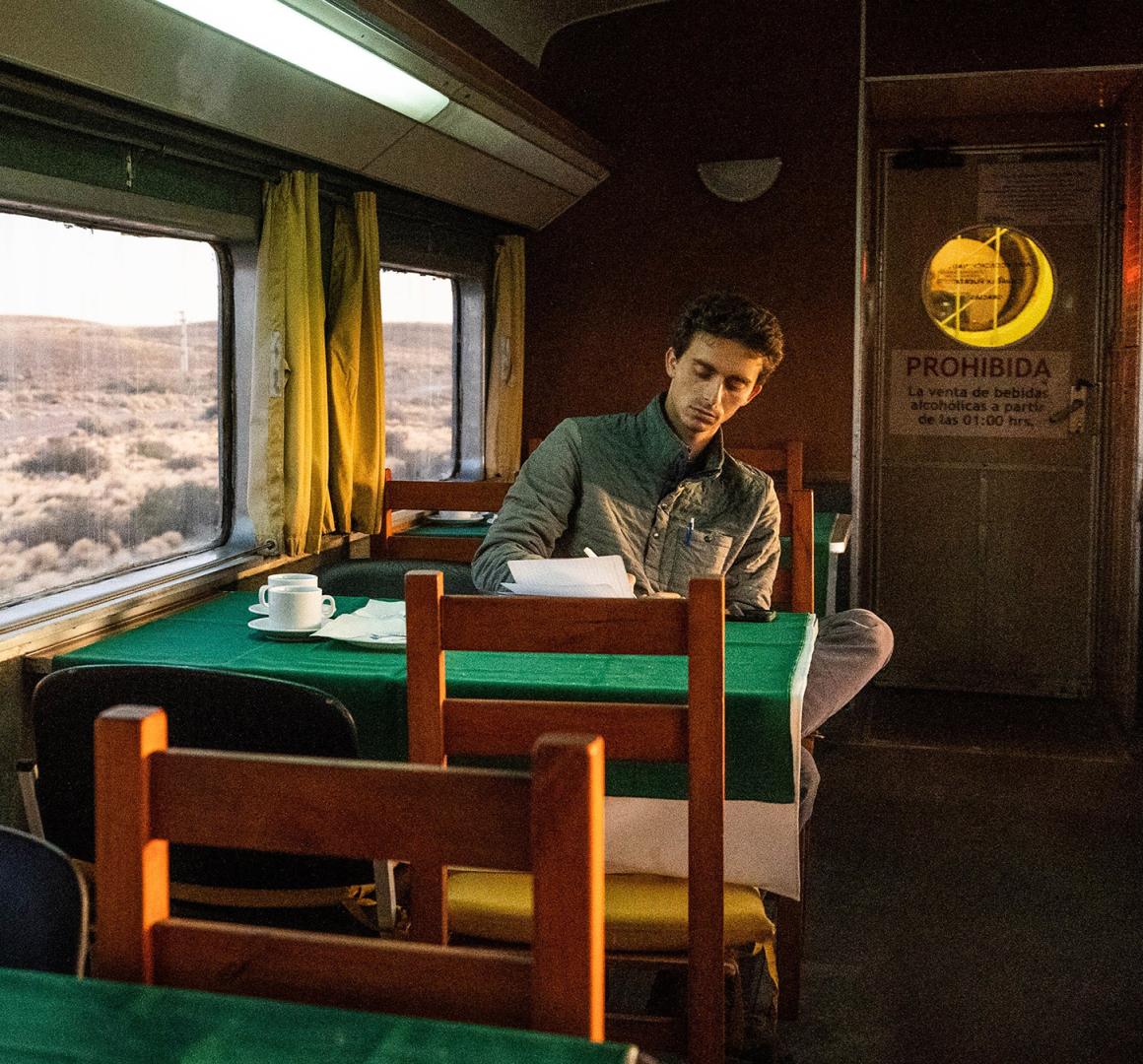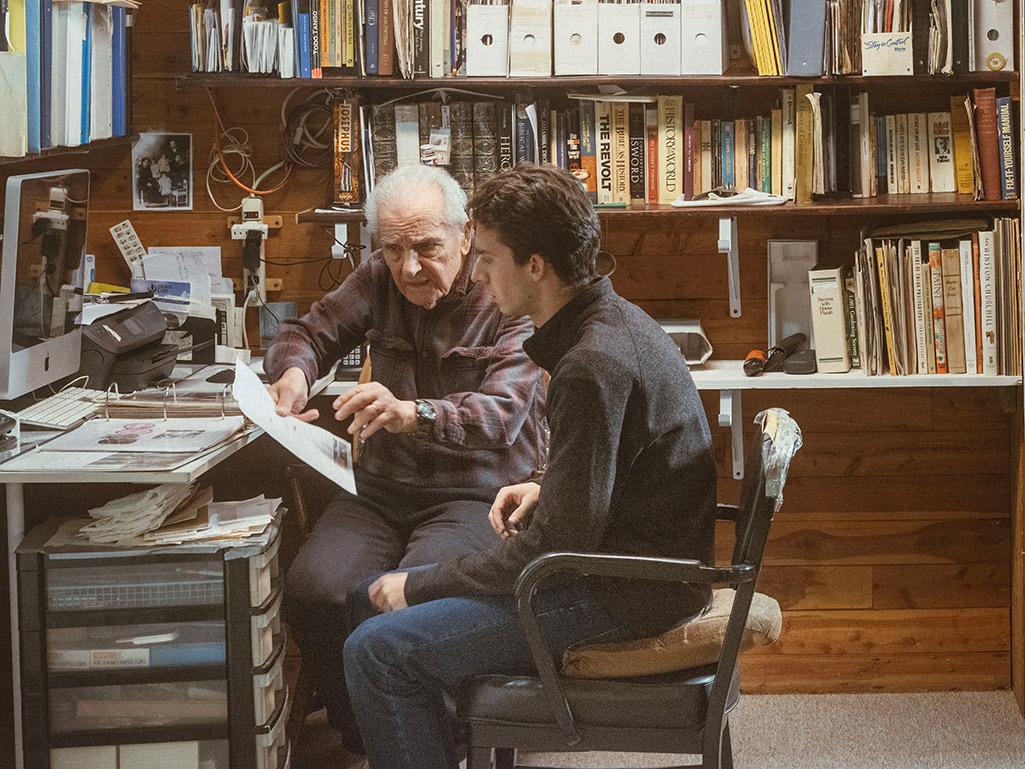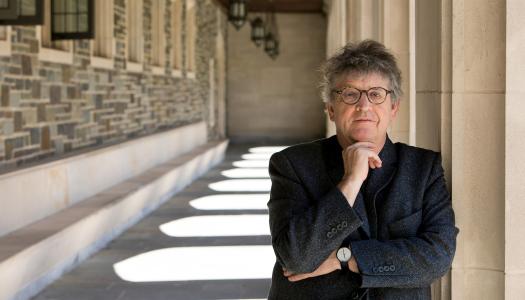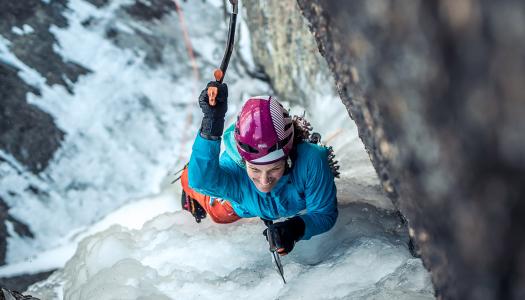Jordan Salama ’19 hopes to share the Argentina he loves with Princeton alumni

Photo by Gaston Zilberman
When Jordan Salama ’19 was in college, he stumbled upon a thick binder bursting with yellowing papers and old photographs in his grandfather’s basement in New York. When he opened it up, he found travel diaries and personal documents chronicling 500 years of Salamas who made it from Spain to Syria to Argentina and then to the United States. Buried in those pages was a family mystery that inspired Salama to visit Argentina and became the basis of his second book. After “Stranger in the Desert” is published next year, Salama will lead a Princeton Journeys trip to Buenos Aires, Nov. 7-14, 2024, custom designed for recent alumni.
When did you know that your next book would be set in Argentina?
At the beginning of my first book, “Every Day the River Changes: Four Weeks Down the Magdalena,” I write a little bit about my family’s migrations in Argentina and how those stories shaped my interests in the world. My greatgrandfather was a traveling salesman in the Andes, and he would go on horseback for two or three months at a time, selling textiles and clothes to indigenous communities in the high Andes. There were rumors in my family that my great-grandfather had fathered children — long-lost descendants that he left behind in the Andes. And when I spoke to readers about “Every Day the River Changes,” their next question always seemed to be about that brief mention of family history. So I decided to write about looking for a family mystery in the mountains of Argentina, and in the process, how I felt Argentinian for the first time.

What did you discover about Argentina that made you feel that way?
Argentine people are so warm and open to sharing their stories with you, especially if you share your story with them. There’s an old tradition called payada, which is like a battle of verse, in which the famous gauchos of Argentina’s pampas would face off against each other, guitars in hand. One cowboy would have a verse and the other would respond with a verse. In a way, that’s how it felt for me when I first went in search of our history in Argentina: I would show up and tell my family story, and then somebody else would respond with theirs, which somehow was inevitably connected to mine.
How do you want your Princeton Journeys trip to Buenos Aires to feel unique?
I would really like people who come on this trip to experience the everyday life of Argentina through interactions with people who live there — seeing it less through a tourist’s lens and more through a local’s lens. We’re planning people-focused adventures and encounters with everyone from youth climate activists to bandoneon players and other tango musicians to prominent writers and journalists. I think the adventure will come in the spontaneity of the way Argentinian people are; there is always room for new social gatherings if one has an open mind, flexibility and a willingness to talk.
Have you always been an adventurous traveler?
The very first time I traveled to another country by myself was to Colombia after my freshman year at Princeton. And I caught this bug — not just the idea of traveling but bringing the spirit of travel writing to my everyday life. You don’t have to travel far to have the spirit of a travel writer; you can do it three blocks from your door if you have an open mind, have curiosity and are willing to speak to and listen to people. That’s the most important thing: listening to people empathetically and respectfully.
Are you an overplanner when it comes to travel?
I overplan in terms of the people I want to meet. I’m very particular about making connections on the ground before I get to a place. But then what often happens is a conversation with one person leads to another, and then another, and then eventually you get lost in that chain of people — which is the best thing ever because then you end up in situations you never could have expected.
Is there something you always pack for a long trip like this?
My harmonica. I can play the most basic of songs, and it’s the smallest instrument you can carry. I’ve found that musical instruments are always good for making friends and starting conversations.
For more information about alumni travel, visit the Princeton Journeys website.

